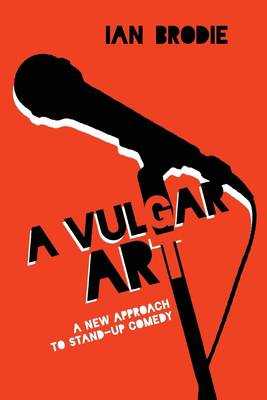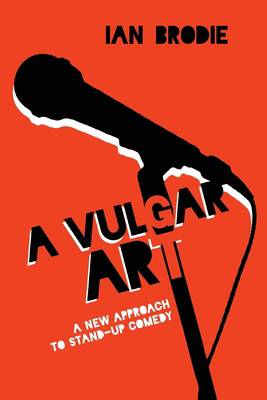
- Afhalen na 1 uur in een winkel met voorraad
- Gratis thuislevering in België vanaf € 30
- Ruim aanbod met 7 miljoen producten
- Afhalen na 1 uur in een winkel met voorraad
- Gratis thuislevering in België vanaf € 30
- Ruim aanbod met 7 miljoen producten
Zoeken
Omschrijving
THE FIRST EXAMINATION OF STAND-UP COMEDY THROUGH THE LENS OF FOLKLORE In A Vulgar Art Ian Brodie uses a folkloristic approach to stand-up comedy, leveraging the discipline's central method of studying interpersonal, artistic communication and performance. Because stand-up comedy is a rather broad category, people who study it often begin by relating it to something they recognize such as literature or theatre, and analyze it accordingly. A Vulgar Art begins with a more fundamental observation: someone is standing in front of a group of people, talking to them directly, and trying to make them laugh. So this book takes the moment of performance as its focus and shows that stand-up comedy is a collaborative act between the comedian and the audience. Although the form of talk on the stage resembles talk among friends and intimates in social settings, stand-up comedy remains a profession. As such, it requires performance outside of the comedian's own community to gain larger and larger audiences. How do comedians re-create that atmosphere of intimacy in a roomful of strangers? This book regards everything from microphones to clothing and LPs to twitter as strategies for bridging the spatial, temporal, and sociocultural distances between the performer and the audience. Ian Brodie, Sydney, Nova Scotia, Canada, is associate professor of folklore at Cape Breton University. He has served as president of the Folklore Studies Association of Canada and is currently the editor for Contemporary Legend: The Journal of the International Society for Contemporary Legend Research.
Specificaties
Betrokkenen
- Auteur(s):
- Uitgeverij:
Inhoud
- Aantal bladzijden:
- 270
- Taal:
- Engels
- Reeks:
Eigenschappen
- Productcode (EAN):
- 9781496807946
- Verschijningsdatum:
- 15/12/2015
- Uitvoering:
- Paperback
- Formaat:
- Trade paperback (VS)
- Afmetingen:
- 152 mm x 229 mm
- Gewicht:
- 394 g

Alleen bij Standaard Boekhandel
+ 118 punten op je klantenkaart van Standaard Boekhandel
Beoordelingen
We publiceren alleen reviews die voldoen aan de voorwaarden voor reviews. Bekijk onze voorwaarden voor reviews.







